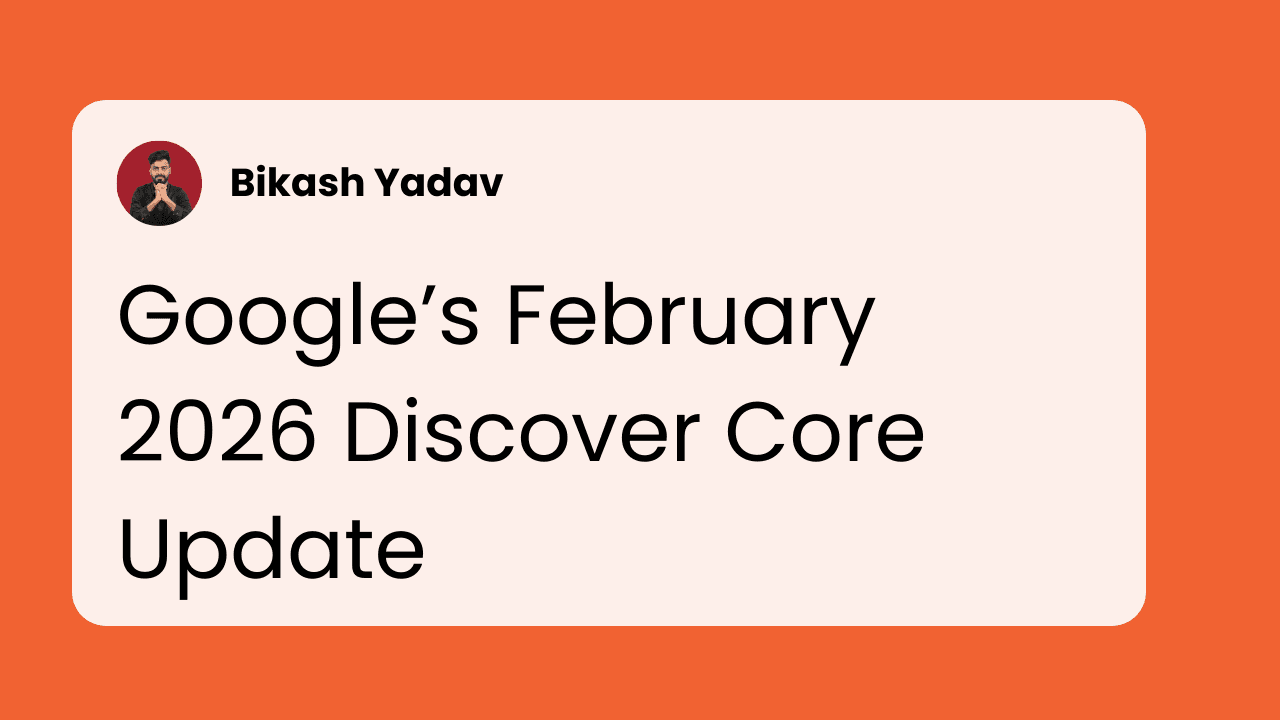What is YMYL?
You might have seen this weird acronym and wondered, “What the heck is YMYL?” It actually stands for Your Money or Your Life.
Yup, Google isn’t kidding – it sounds dramatic!) In simple terms, YMYL pages are any content that could impact your happiness, health, financial stability, or safety.
Imagine advice about treating the flu, or tips on investing your savings. Those are high-stakes topics. Google’s official docs say they give extra attention to pages on these topics.
In fact, Google says: “We have very high Page Quality standards for pages on ‘Your Money or Your Life’ topics because low quality pages could potentially negatively impact the health, financial stability, or safety of people”.
In other words: screw up here, and you could hurt someone (or their wallet!), so Google holds YMYL pages to the highest standard.
YMYL page examples: Think “big decision” content. For instance:
- Financial advice: investing, taxes, retirement planning, loans, banking, insurance, etc. (Your money.)
- Health & safety: medical info, drug advice, disease treatment, emergency preparedness, how risky an activity is, etc. (Your life.)
- News & current events: especially major news about politics, wars, economics, science, tech (serious stuff, not just celeb gossip).
- Legal/civics info: voting guidance, government services, legal topics (e.g., divorce, custody, wills, immigration).
- Shopping: guides or sites for buying big-ticket items, especially if handling money (not “OMG that phone has 5 cameras!”).
- Other life decisions: education, careers, housing, nutrition, etc. Basically, anything that a wrong answer could hurt people’s wallets or well-being.
As one guide puts it, YMYL includes “financial or health advice, news, and shopping,” among others. Another breakdown (from Google’s own raters guide) lists topics like “news and current events… government and law… finance… shopping… health and safety… groups of people… fitness, nutrition, housing, finding a job” and more.
So yeah, if your content could make or break someone’s paycheck or life, congratulations – it’s YMYL.
Why Google Cares (The High Stakes of YMYL)
So why the big fuss? Because Google’s goal is to send people good, reliable info. When something can literally affect your money or life, they get extra picky.
Google’s quality raters (real humans who check search results) are told to grade YMYL pages on a super high scale.
As a Search Engine Land article explains, “These types of sites are held up to the highest standard in the Google search results”.
If a YMYL page is sketchy or incorrect, Google doesn’t want it to rank, as it could harm users.
Think of it this way: a typo in a recipe isn’t great, but a typo in a medicine dosage could be deadly. Google knows that. So any misinformation or sloppy content on YMYL pages can have “real-world harm”.
That’s why the official docs say they even give extra weight to expertise and trust for these topics.
Google literally tells raters to apply “very high Page Quality standards for YMYL pages” because “low quality pages could negatively impact the health, financial stability, or safety” of people.
They even updated guidelines to emphasize YMYL topics over just page, meaning it’s about the subject matter. So if you’re writing about mortgages, medical tips, or legal stuff, Google is basically paranoid that the info is bulletproof.
YMYL & SEO: What It Means for Your Site
Okay, so YMYL is serious business. How does that change the SEO game? In one sentence: YMYL pages need top-notch quality and trust.
You can’t get away with thin content, clickbait, or random blog posts here. Google expects strong E-E-A-T signals (Experience, Expertise, Authoritativeness, Trustworthiness) on YMYL content.
A few key points:
Expertise & Credentials:
Make it obvious you know what you’re talking about. If it’s health or legal advice, have actual experts write or review it. Add bylines, author bios, credentials – even LinkedIn profiles if possible.
Google’s raters look for author info on YMYL pages. As one SEO guide notes, publishers should “hire authors that are experts in their field, adding ‘about’ info and contact details” to build E-A-T. In short: show off your smarts!
Trust & Sourcing:
YMYL content must be super reliable. Cite reputable sources (studies, official data, expert quotes). If you’re giving financial or medical advice, link to known authorities.
Google explicitly wants accuracy for YMYL and checks if the content is trustworthy.
Remember: trust is king here. “Untrustworthy pages have low E-E-A-T no matter how experienced or authoritative they seem,” Google warns. So fact-check everything.
Quality & Depth:
YMYL content can’t be shallow. You need comprehensive, useful info – not 300 words of fluff. Google’s advice is to focus on “people-first content”.
For YMYL, that means filling your pages with genuinely helpful, accurate details. Include data, examples, and step-by-step guidance if needed. Also, update it regularly; old health/finance info can become wrong quickly.
User Experience (UX):
Google has hinted that “quality” is more than words. It includes how the page looks and works. Ads? Popups? These can hurt you.
In fact, Glenn Gabe notes Google considers YMYL sites holistically, “quality is more than just content. … it’s about content, the user experience, how things are presented”. So ensure your site is clean, loads fast, mobile-friendly, and not overloaded with junk.
Authority & Reputation:
Links still matter. If reputable sites link to you (and social mentions, reviews), that boosts trust. For YMYL niches, earning authoritative backlinks and having a positive online reputation is a big win.
Google’s signals (like PageRank) are highlighted as indicators of authority for E-A-T. In practice, outreach or PR for credible mentions can help your YMYL site.
If you have YMYL content, treat it like a VIP. Go above and beyond to prove you’re a trusted source. Add author bios, cite sources, keep info updated, and polish the whole site experience.
Real-World SEO & Google Updates (YMYL in Action)
You might be wondering if this stuff actually matters. Spoiler: it does a lot! Google’s big algorithm updates tend to shake up YMYL sectors.
For example, the August 2018 “Medic” core update saw tons of health/medical sites (classic YMYL) lose rankings overnight.
People joked it targeted the medical niche, but the lesson was clear: Google was reinforcing its focus on E-A-T for YMYL.
Glenn Gabe explains that “YMYL sites are extremely important to Google… [they] are held to a higher standard, since they can ‘impact the future happiness, health, financial stability, or safety of users.’”
In other words, screw up your health advice and you’ll feel the penalty.
More recently, the broad June 2025 core update triggered huge volatility in YMYL verticals. Gabe reported that sites with health, finance, and legal content saw dramatic swings – because Google’s algorithms pay special attention there.
He even noted: “Sites containing YMYL content…can always see a lot of volatility during broad core updates”.
And he reiterated: “Sites focused on YMYL topics are held to a higher standard algorithmically by Google”.
This pattern repeats: every major update, the SEO buzz often revolves around whether the affected sites were YMYL. If your site lives in that world, you’ve got to keep it top-notch or risk getting bumped by the next core update.
There are case studies too. Take this insurance broker example: one SEO expert worked with an insurance website (hello, YMYL!) and doubled its organic traffic by focusing on E-A-T and content quality.
They built out author bios, added detailed FAQs, and established trust. As they noted, “E-A-T is essential for YMYL niches”. In fact, they explicitly said the site “was lacking in E-A-T, which is extremely important if you want to rank”.
By shoring up expertise and trust signals, they saw big gains. That story proves it: real SEO success in YMYL areas comes from doubling down on quality.
Can you imagine that? Something as simple as adding author info, citing sources, and answering common questions (Google loves FAQs) can flip your rankings.
One strategy was adding helpful FAQ content marked up with schema, which can even snag rich results. Google’s been pushing “people-first” content, and FAQs often answer exactly what users need, boosting both trust and rankings.
So yeah – in YMYL land, SEO is more about helping people than gaming the algorithm. You won’t win with spammy tactics here.
Instead, every update reminds us: Google is on guard for YMYL sites. If you skimp on quality or trust, you’re likely to drop. But if you nail your expertise and offer real value, you can actually outperform competitors who cut corners.
Tips for YMYL Content (SEO Cheat Sheet)
Let’s wrap up with some friendly pointers. If you’re handling YMYL stuff, keep these in mind:
- Treat it like a professional publication. Have real experts write or review the content. Use high-quality images, avoid typos, and make your site look serious. (Think major medical or financial site, not a random blog.)
- Show your credentials everywhere. Author bios, credentials, and about page. Display your experience and why readers should trust you.
- Cite reputable sources. Link out to studies, official guidelines, government sites or well-known news. This shows you’ve done your homework.
- Build a reputation. Encourage reviews, testimonials, or positive press. Engage with your community (e.g., answer comments or questions). A good online rep signals trust.
- Keep content fresh and accurate. Update outdated info (medical advice changes, tax laws change). Old stale pages get dinged. Google’s quality raters actually check if content is up-to-date.
- Avoid clickbait or spammy ads. Especially on YMYL pages, any hint of deception will hurt you. And too many big ads? That’s a penalty.
- Focus on user questions. Use FAQ schema, how-to lists, etc., to cover what people really want to know. Google’s algorithms and “helpful content” updates reward thorough, useful answers to users’ queries.
Remember, Google’s playing the long game: it wants YMYL search results to be reliable. So the faster you align with that – by highlighting expertise and trustworthiness – the better. As one SEO author quips, “Google wants to send users to trustworthy sites,” so accuracy is “a crucial factor” for YMYL.





